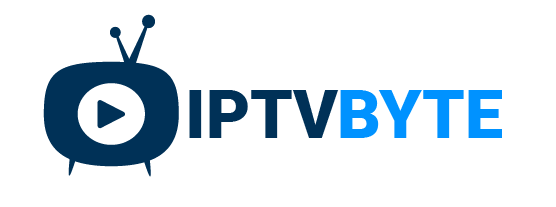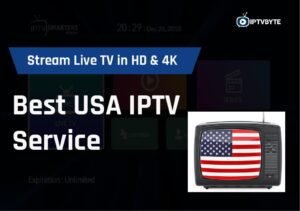Introduction
In 2025, the way we consume television has evolved dramatically. Traditional cable TV, once the king of home entertainment, now faces strong competition from IPTV (Internet Protocol Television). Both options deliver your favorite channels and shows, but the differences in technology, cost, flexibility, and viewing experience can be huge.
If you’re deciding between IPTV vs Cable TV, this guide will break down everything you need to know so you can choose the best option for your needs—and maybe save money while enjoying better content.
Key Takeaways
IPTV vs Cable TV comes down to flexibility, cost, and content variety.
IPTV offers more channels, better pricing, and modern features for tech-savvy viewers.
Cable TV is still useful in areas with poor internet or for those who prefer a traditional setup.
For most users in 2025, IPTV is the smarter choice for entertainment.
What Is IPTV?
IPTV delivers television content over the internet instead of through traditional coaxial cables or satellite signals. With IPTV, you can stream live TV, on-demand shows, and even exclusive channels using your internet connection.
Benefits of IPTV include:
Works on multiple devices (Smart TVs, smartphones, laptops, TV boxes).
Offers more customization and package flexibility.
Often includes on-demand and catch-up TV features.
Typically more affordable than cable.
What Is Cable TV?
Cable TV uses a physical coaxial cable connection to deliver content to your television. It’s been the standard for decades and is widely available in most regions.
Benefits of Cable TV include:
Reliable signal without depending on internet speed.
Established provider networks with bundled deals.
Simple setup—just connect the cable box and go.
However, cable TV often comes with higher monthly fees, fewer customization options, and limited flexibility compared to IPTV.
IPTV vs Cable TV: Side-by-Side Comparison
| Feature | IPTV | Cable TV |
|---|---|---|
| Delivery Method | Internet streaming | Coaxial cable |
| Device Support | Smart TVs, smartphones, tablets, laptops, TV boxes | TV only (unless with extra streaming app) |
| Cost | Lower, more flexible | Higher, often fixed |
| Channel Variety | Huge international options | Mostly local/national |
| On-Demand Content | Included in most plans | Limited |
| Picture Quality | 4K & HD (depends on internet speed) | HD, sometimes 4K |
| Portability | Watch anywhere with internet | Limited to home connection |
| Installation | Easy—download app & login | Requires cable installation |
Why IPTV Is Winning in 2025
Lower Cost – IPTV services are often 50–70% cheaper than cable packages.
More Channels – IPTV gives you global access, from US sports to European news to Asian dramas.
On-Demand Features – Pause, rewind, and watch later without needing a DVR box.
Device Flexibility – Use your subscription across different devices and locations.
4K Streaming – If you have fast internet, IPTV can offer crystal-clear quality.
When Cable TV Might Still Be Better
- Poor Internet Coverage – If you live in an area with slow or unreliable internet.
- Bundled Services – If you want to combine TV, phone, and internet from one provider.
- Simple Use Case – If you just need a few local channels without caring about extra features.
"Trusted Resources for Understanding IPTV vs Cable TV"
If you’re exploring IPTV vs Cable TV, it helps to check expert reviews and technical comparisons. For in-depth product testing and buying advice, TechRadar offers updated articles comparing streaming and cable services. You can also visit CNET for detailed breakdowns of IPTV features, cable packages, and performance tests to make an informed choice between IPTV vs Cable TV.
Yes, legal IPTV providers operate under proper licensing agreements. Always choose reputable services.
For HD streaming, at least 10 Mbps is recommended. For 4K streaming, aim for 25 Mbps or higher.
Yes, most IPTV subscriptions allow you to watch on multiple devices, sometimes even at the same time.
Yes, you can use a streaming device like Fire Stick, Android TV box, or even your smartphone.
In most cases, IPTV is much cheaper while offering more features and channels.
The main difference between IPTV vs Cable TV is that IPTV streams over the internet while cable uses physical wiring.
In most cases, IPTV vs Cable TV comparisons show that IPTV offers cheaper plans with more flexibility.
With a strong internet connection, IPTV can surpass cable in the IPTV vs Cable TV quality debate.
IPTV works anywhere with internet, while cable is fixed to your home location.
When we talk about the future of IPTV vs Cable TV, IPTV is clearly leading the way in 2025.
The IPTV vs Cable TV debate in 2025 has a clear trend—viewers are moving toward IPTV for its affordability, flexibility, and modern features. While cable TV still has a place in some situations, IPTV offers a future-proof solution for entertainment.
If you value choice, portability, and cost savings, IPTV is the way forward.
Choosing between IPTV vs Cable TV comes down to your personal needs and environment. In today’s streaming-driven world, IPTV offers unmatched flexibility and global access to content, often at a fraction of the price of cable.
If you’re ready to cut the cord and explore a richer viewing experience, check out our recommended IPTV services and start enjoying more content for less.






